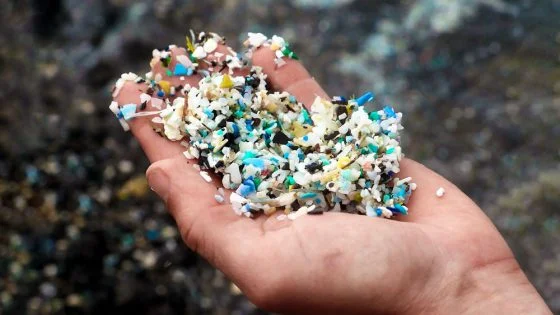
TRUMP SAYS: HUNTER MAKES FORTUNE FROM SHADY DEALS!
BIDEN FAMILY STINKS TO HIGH HEAVENS OF CORRUPTION!
DON'T GET LEFT OUT: HUNTER MUST BE STOPPED!

DON'T GET LEFT OUT: HUNTER MUST BE STOPPED!
by Ava Grace | Mar 17, 2025 | Headline News, Health | 0 comments

This article was originally published by Ava Grace at Natual News.
Researchers from Boston University (BU) have uncovered a disturbing link between microplastics and antibiotic resistance, raising alarms about the unintended consequences of our plastic-laden world.
Their study published Tuesday, March 11, in Applied and Environmental Microbiology revealed that Escherichia coli bacteria are exposed to microplastics, they become five times more resistant to four widely used antibiotics. While E. coli is a common bacterium that typically resides harmlessly in the human gut, certain strains can be harmful and cause severe infections.
The study authors focused on a laboratory strain of E. coli, which they then cultured with microplastics. The bacteria subsequently formed biofilms – sticky, protective layers that act like armor – on the surface of microplastics. These biofilms made the bacteria significantly harder to kill with drugs like ciprofloxacin, doxycycline, fluoroquinolone and ampicillin.
What’s particularly troubling is that this resistance isn’t limited to a single antibiotic. The study also found that microplastics broadly enhance the bacteria’s ability to withstand multiple drugs, making infections harder to treat and potentially more deadly. This ultimately underscores a growing global crisis: the rise of superbugs that defy modern medicine, fueled by environmental pollution.
Microplastics, tiny plastic particles less than five millimeters in size, are ubiquitous. They’re in our oceans, soil, air and even our drinking water. Now, it appears they’re also playing a dangerous role in the spread of antibiotic resistance, a phenomenon that already claims 35,000 lives annually in the United States alone, according to the U.S. Centers for Disease Control and Prevention. (Related: Microplastics: The silent saboteurs of global food security and human health.)
The findings have dire implications for wastewater treatment plants, which the study identifies as “hot spots” for antibiotic resistance. These facilities are flooded with both microplastics and antibiotics, creating an ideal environment for bacteria to develop resistance. As wastewater is treated and released back into the environment, these superbugs can spread, posing a threat to public health.
“Microplastics are like rafts. A bacterium on its own might not be able to swim down a river, but riding in its biofilm on a tiny bit of plastic, it can be disseminated into many different environments,” said BU doctoral student in materials science and engineering Neila Gross, who is also the study’s corresponding author.
This problem is compounded in disadvantaged communities, where poor sanitation and limited access to healthcare make populations more vulnerable to infections. The study warns that the combination of microplastics and antibiotic resistance could disproportionately harm these communities, exacerbating existing health disparities.
The study adds to a growing body of evidence linking microplastics to antibiotic resistance. Earlier research published in Environment International found that microplastics in soil can increase the spread of resistance genes by up to 200 times.
Still, Gross and her co-authors urge immediate action. They call for stricter regulations on plastic waste, improved wastewater treatment methods, and increased funding for research into the interactions between microplastics and bacteria.
The stakes couldn’t be higher. Antibiotic resistance is already one of the top global public health threats, according to the World Health Organization (WHO). If microplastics are indeed fueling this crisis, the consequences could be catastrophic.
Visit Superbugs.news for more similar stories.
Watch this video about the dangers of microplastics and their presence everywhere.
This video is from the GalacticStorm channel on Brighteon.com.

It Took 22 Years to Get to This Point
by Mac Slavo | Apr 28, 2025 | 1 Comment
The United Kingdom could suspend the United States pharmaceutical company Moderna over its shady...
by Cassie B. | Apr 29, 2025 | 0 Comments
This article was originally published by Cassie B. at Natural News. Trump vows to end Ukraine...
by Mac Slavo | Apr 29, 2025 | 0 Comments
Virologists have warned the United States that bird flu could escalate into a full-blown pandemic....
You must be logged in to post a comment.
Commenting Policy:
Some comments on this web site are automatically moderated through our Spam protection systems. Please be patient if your comment isn’t immediately available. We’re not trying to censor you, the system just wants to make sure you’re not a robot posting random spam.
This website thrives because of its community. While we support lively debates and understand that people get excited, frustrated or angry at times, we ask that the conversation remain civil. Racism, to include any religious affiliation, will not be tolerated on this site, including the disparagement of people in the comments section.
© 2009 - 2025 Copyright SHTF Plan • Site by 620 Studio • Report a website problem | Disclaimer
Comments